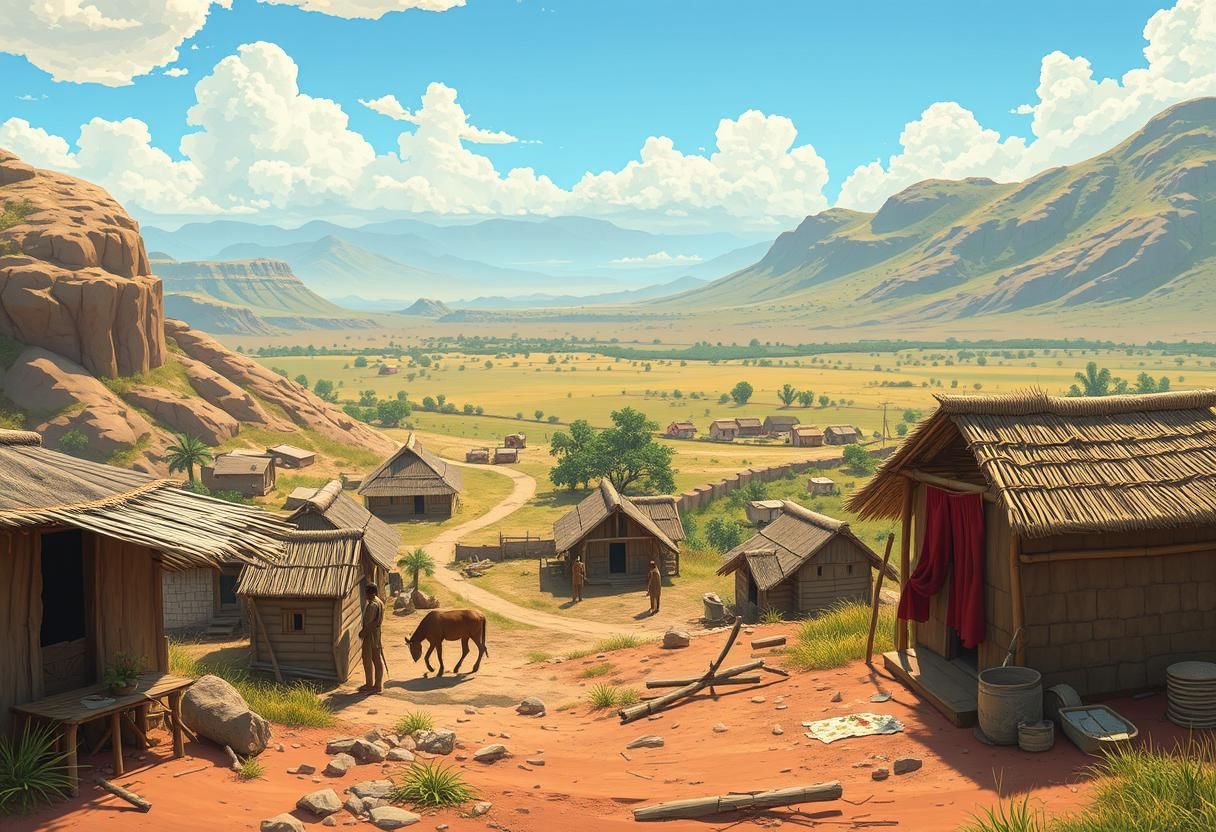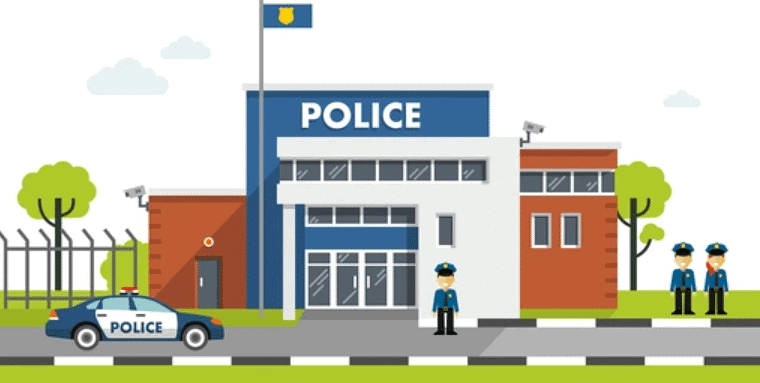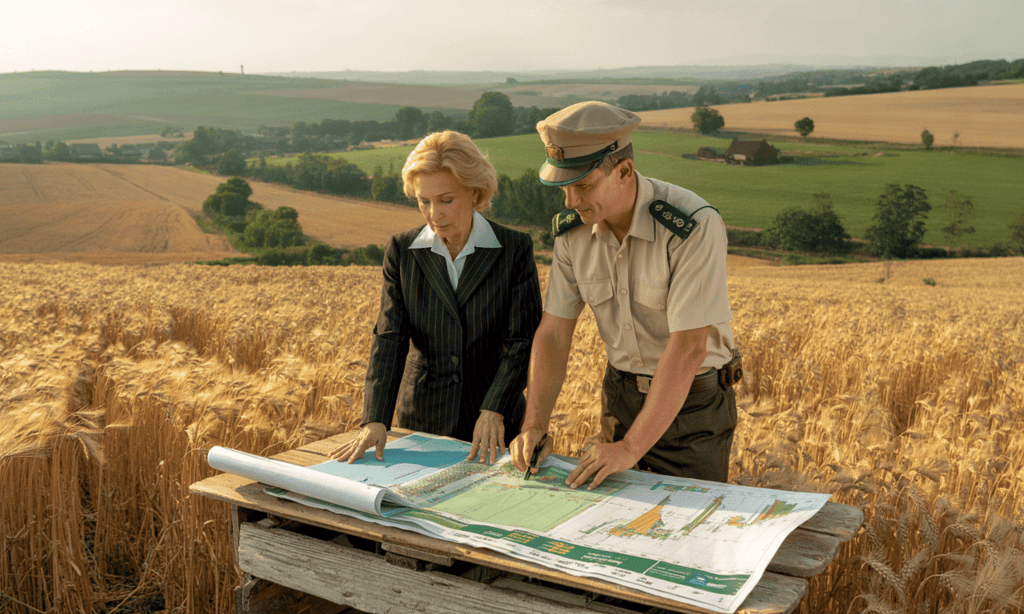Class 6 Exam > Class 6 Notes > Chapter Notes For Class 6 > Chapter Notes: Rural Administration
Class 6 Civics Chapter 5 Notes - Rural Administration
What is Rural Administration?
- India is a vast country with a vast land area.
- There are more than six lakh villages in India.
- It does not provide basic necessities like water, electricity and roads to all these villages.
- To keep villages on track, it is necessary to maintain law and order in villages and keep a record of its land and revenue.
- This is the task of rural administration.

Question for Chapter Notes: Rural AdministrationTry yourself:What is the purpose of rural administration in villages?
View Solution
Area of the Police Station
- In case of a dispute, in an area people go to the police station.
- A particular police station works for a particular area and all people living in that area
- All persons of a particular area can register complaints in their local police station.
- The complaints can vary from theft, injury, fight or accident.
The Work at the Police Station
- The report lodged is known as First Information Report (F.I.R.).
- The Station House Officer (S.H.O.) is in charge of every police station.
- To get a case registered, one has to report in writing at the police station.
- Then, the police officials examine the case and take action as per the law.
- In rural areas, disputes occur over land very often.

Question for Chapter Notes: Rural AdministrationTry yourself:What is the name of the report lodged at a police station when registering a case?
View Solution
Maintenance of Land Records
- Measuring land and keeping land records is the main work of the Patwari.
- The Patwari is known by different names in different states - in some villages such officers are called Lekhpal, in others Kanungo or Karamchari or Village Officer etc.
Functions of Patwari
- The village Patwari keeps a record of the land areas kept by people.
- A Patwari deals with measuring land and maintaining the land records belonging to different villages.
- The village Patwari is also responsible for the collection of land revenue from the village.
- The village Patwri is also responsible for providing information to the government about the crops grown in the area
- The Patwari is assisted by other officers.
- The Patwari's Khasra record provides information about land ownership
Management of Land of Village
- All states in India are divided into districts.
- These districts are further sub-divided known by different names such as tehsil, taluka, etc.
- At the head is the District Collector and under her are the revenue officers, also known as tehsildars.
- The revenue officers or tehsildars come under the district collector.
- The tehsildar is responsible for supervising the work of Patwari regarding collection of land revenue.
- They also perform administrative tasks like providing farmers with copies of their land records and hearing land disputes.

Question for Chapter Notes: Rural AdministrationTry yourself:What is the main responsibility of a tehsildar in the management of land in a village?
View Solution
A New Law: Hindu Succession Amendment Act (2005)
- The Hindu Succession Amendment Act, 2005 was introduced to give Hindu women equal rights to agricultural land.
- Previously, women were not entitled to a share of the family's agricultural land in some states.
- The new law grants equal shares to sons, daughters, and mothers in Hindu families.
- This law applies to all states and union territories in the country.
- The amendment aims to benefit a large number of women who were previously excluded from owning agricultural land.
- The example of Sudha, the eldest daughter of an agricultural family, illustrates how the new law has empowered women. Sudha's mother has requested the transfer of land ownership to include all the children's names, including Sudha's. Sudha's mother confidently manages the farming with the help of her younger brother and sister. Sudha also feels secure knowing that she has a share of the land, which she can rely on if she ever encounters any difficulties.
 Land Rights Equality
Land Rights Equality
The document Class 6 Civics Chapter 5 Notes - Rural Administration is a part of the Class 6 Course Chapter Notes For Class 6.
All you need of Class 6 at this link: Class 6
FAQs on Class 6 Civics Chapter 5 Notes - Rural Administration
| 1. What is rural administration? |  |
Ans. Rural administration refers to the system of governance and management of rural areas, including villages and small towns. It involves the implementation of various government policies, programs, and services to address the needs and development of rural communities.
| 2. What is the area of the police station? |  |
Ans. The area of a police station refers to the jurisdiction or geographic boundary assigned to a specific police station. This area is typically determined based on population density, crime rates, and administrative convenience to ensure effective law enforcement within a defined region.
| 3. What are the functions of a Patwari? |  |
Ans. A Patwari is a government official responsible for maintaining land records and conducting land-related surveys in rural areas. Their functions include recording details of land ownership, conducting land measurements, collecting land revenue, and resolving land disputes among the rural population.
| 4. What is the Hindu Succession Amendment Act (2005)? |  |
Ans. The Hindu Succession Amendment Act (2005) is a law enacted in India to amend the Hindu Succession Act, 1956. It aims to provide equal rights to daughters in the ancestral property of their fathers. The amendment grants daughters the same rights as sons to inherit property, removing gender-based discrimination prevalent in the earlier law.
| 5. What is the role of rural administration in the management of village land? |  |
Ans. Rural administration plays a crucial role in the management of village land. It involves overseeing land records, ensuring proper land use planning, resolving land disputes, and implementing government policies related to agriculture, irrigation, and rural development. The administration also collaborates with local authorities and community members to promote sustainable land management practices and equitable distribution of land resources.
Related Searches

















